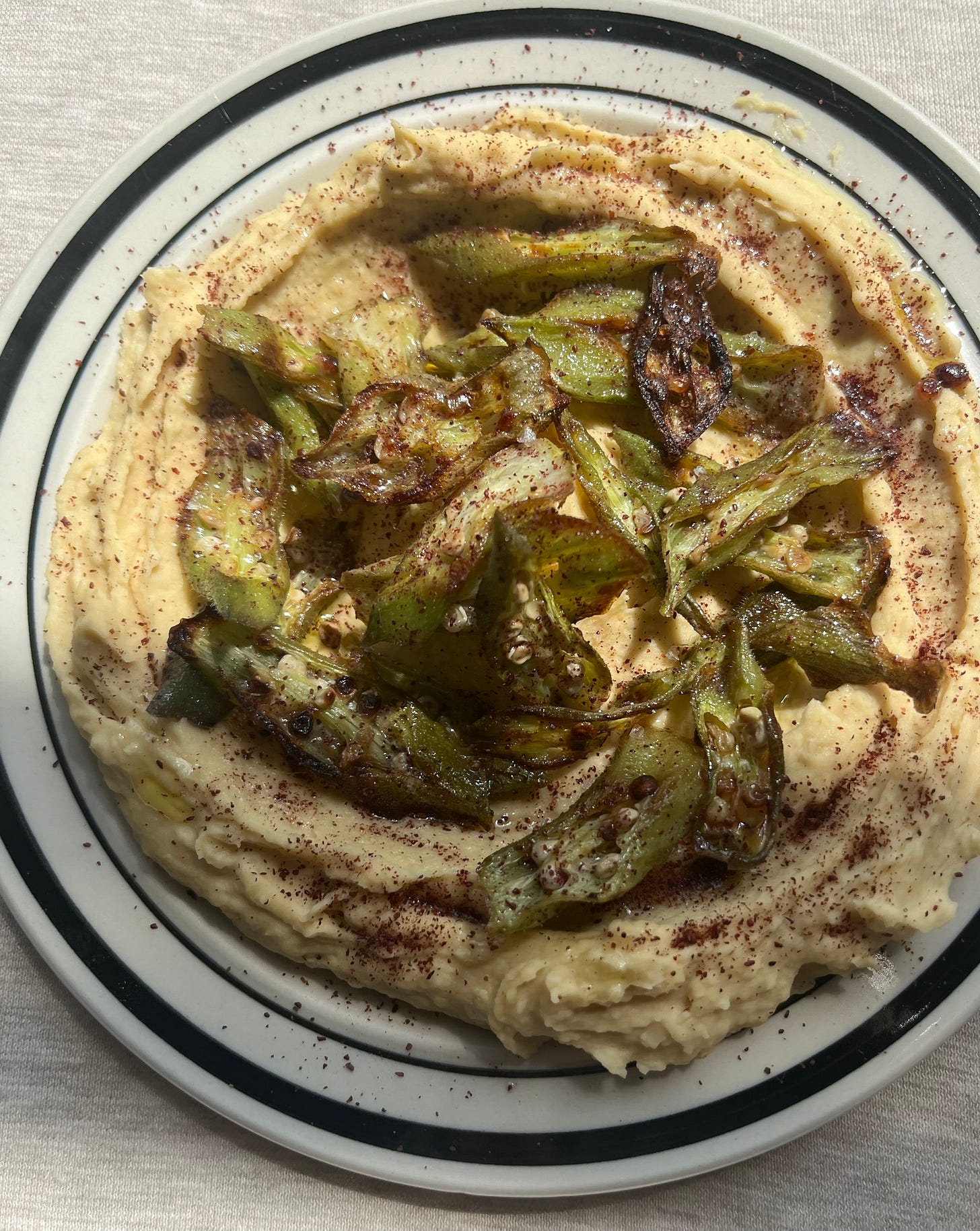raise your hand if you love dips
Anticipatory silence. The echo of excited chatter overlapping with wordless melodies hangs in the air. Someone grabs the end of the embroidered fabric and snatches it into the air. They place their hands on the challah and out comes a sweet little tune that sounds like Hebrew School snack time and chaotic summer camp dining halls. They scan the table. A look of panic. They forgot the salt. A sprint to the kitchen and a triumphant return. The salt spills out of their hands, crashing onto the bread. It sticks in the crevices of the inner braids and slides right off the rolling brown hills. The bread is passed around and as soon as a bite is taken the room erupts into noise once more. The silence doesn’t return until late into the night when the guests leave.
The salt sprinkle isn’t a tradition I grew up with, but I love both the drama of ritual and the taste of salt, so as soon as I started hosting my own Shabbat dinners, the salt flowed. I heard from a few people that it had to do with the salt that was sprinkled on sacrifices in the temple, but it feels like it holds more meaning than just reminding us of another time.
In Talmud Berakhot 55a, “Rabbi Yoḥanan and Rabbi Elazar both say: As long as the Temple stood, the altar atoned for Israel’s transgressions. Now that it is destroyed, a person’s table atones for his transgressions.” If the table is our altar then the challah is our sacrifice. When we sprinkle it with salt we signify that it is more than just bread, it is an earnest offering.
Some people dip their challah in salt instead of sprinkling it on top. I read on a Chabad (shout out Crown Heights) blog that according to Kabbalistic tradition, salt’s bitterness represents “divine severity,” while bread’s life-saving sustenance represents divine kindness. Both words have the same Hebrew letters (salt = מלח, bread = לחם) and represent two sides of the same divinity. While we admit that both sides of God exist, we want to do whatever we can to push for more kindness. So for this reason instead of letting the salt dominate the challah, we let the bread take the active role and sit atop the salt.
If dipping challah into salt makes it an offering that asks for kindness, then can other dips have the same effect? In my opinion, for sure!
I’m not sure if this is a thing at secular dinner parties (I don’t have the stamina to host another dinner party besides Shabbat), but dips are an essential part of the Shabbat meal. When you are tasked with bringing dips as your contribution to the meal, you have full creative control. Some weeks all it takes is dropping $20 at the Kosher Marketplace and some weeks it means soaking chickpeas a day in advance to make the perfect hummus.
This week I brought two holy dip offerings: homemade hummus with lots of lemon and tahini, topped with olive oil, sumac, and fried okra from Jesse’s farm, and an eggplant dip from BA (eggplants also from the farm) with Greek yogurt and sweet and tangy agrodolce (made with red wine vinegar, honey, and red pepper flakes. Both of them had salt, so hopefully Hashem got the message.





